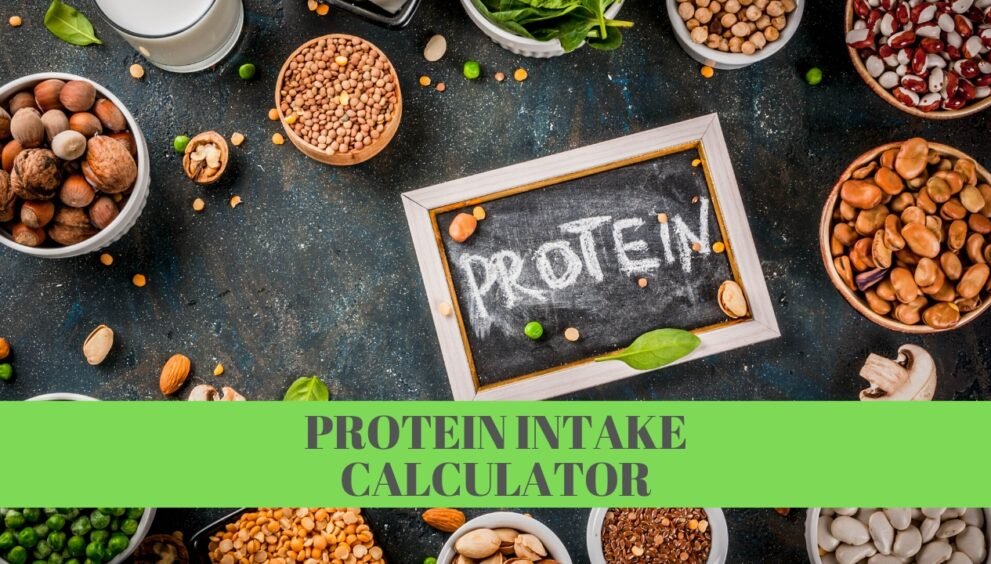Protein Calculator for Weight Loss: Drop Pounds Fast with This Game-Changing Hack

Picture this: you’re standing at the crossroads of yet another diet plan, armed with willpower and a fridge full of chicken breasts, but the scale just won’t budge. Sound familiar? For millions of Americans chasing weight loss, the missing piece might not be more cardio or fewer carbs—it could be protein. Enter the protein calculator for weight loss, a simple yet game-changing tool that takes the guesswork out of your nutrition game. Whether you’re a gym buff or just someone tired of fad diets, getting your protein intake right can turbocharge your fat-burning journey. In this deep dive, we’ll unpack how these calculators work, why protein is your secret weapon, and how to wield this tool like a pro to drop pounds without losing your mind. Ready to make weight loss smarter, not harder? Let’s dig in.
Understanding the Basics
At its core, a protein calculator is an online tool or formula that estimates how much protein you need daily based on factors like your weight, activity level, and goals—specifically, in this case, shedding unwanted pounds. Unlike generic diet advice (“eat more protein!”), it personalizes your intake, so you’re not just throwing spaghetti at the wall to see what sticks. You plug in details like your body weight, age, and exercise habits, and voilà—it spits out a number tailored to you.
Why does this matter? Protein isn’t just for bodybuilders flexing in the mirror. It’s a macronutrient that keeps you full, preserves muscle while you lose fat, and even boosts your metabolism. For weight loss, the stakes are higher—you want enough to support your body without overdoing it. On Reddit’s r/loseit community, one user raved, “Figuring out my protein needs was a lightbulb moment. I stopped starving myself and still lost 20 pounds!” That’s the power of precision.
Protein Calculator for Weight Loss: The Science Behind It
So, how does a protein calculator for weight loss transform your diet plan? First, it aligns your diet with science. Experts suggest that protein should make up 20-35% of your daily calories when you’re cutting weight, but who has time to do that math manually? A calculator does it for you, factoring in your unique stats. For example, a 180-pound woman aiming to lose 30 pounds might need 90-120 grams of protein daily, depending on her activity level. Without a tool, she might undershoot and lose muscle or overshoot and stall her progress.
Moreover, protein has a higher thermic effect than carbs or fats—meaning your body burns more calories digesting it. Pair that with its ability to curb hunger, and you’ve got a recipe for sustainable fat loss. “Protein is the cornerstone of weight management because it supports muscle mass and satiety, which are critical for long-term success,” says Dr. Donald Layman, a nutrition expert. Studies echo this, showing that higher-protein diets lead to more fat loss and less muscle waste compared to low-protein plans.
On Reddit’s r/weightlossadvice, users often share how tracking protein shifted their mindset. One wrote, “I used to obsess over calories, but once I hit my protein target, I stopped snacking like a maniac.” That’s the magic: it’s not just about eating less—it’s about eating smarter.
How to Use a Protein Calculator Effectively
Now that you’re sold on the idea, let’s talk execution. Using a protein calculator is straightforward, but there’s an art to it. Start by finding a reputable one—sites like MyFitnessPal or Bodybuilding.com offer free options that account for weight loss goals. Input your current weight, height, age, and activity level (be honest—couch potato or weekend warrior?). Then, select “weight loss” or “fat loss” as your objective. The calculator will estimate your daily protein needs, typically ranging from 0.8 to 1.2 grams per pound of body weight for most people trimming down.
Next, adjust for reality. If you’re sedentary, stick to the lower end. If you’re hitting the gym regularly, aim higher to protect your hard-earned muscle. For instance, a 200-pound guy who lifts weights might target 200 grams, while his desk-jockey twin might settle for 160. From there, plan your meals—think grilled chicken, Greek yogurt, or a trusty protein shake. Reddit’s r/fitness crowd swears by keeping it simple: “Eggs in the morning, turkey at lunch, whey after workouts—done.”
However, don’t stop at the number. Track your progress weekly. If the scale stalls or you feel sluggish, tweak your intake slightly. The calculator’s a starting point, not gospel.
Who Should Use a Protein Calculator?
The beauty of this tool is its universal appeal. Whether you’re a 30-something mom juggling kids and keto, a retiree shedding pandemic pounds, or a college student dodging the freshman 15, a protein calculator can fit your life. It’s especially clutch for Americans, where portion sizes are massive, and processed junk is everywhere—protein keeps you grounded.
For beginners, it demystifies nutrition. No more wondering if that chicken breast is “enough.” For seasoned dieters, it fine-tunes an already solid plan. Even vegetarians or vegans can benefit—swap meat for lentils, tofu, or pea protein powder, and the calculator still works its magic. A Redditor in r/veganfitness noted, “I was skeptical, but hitting my protein goal with plants totally changed my energy and weight loss pace.”
That said, it’s not for everyone. If you’ve got kidney issues or other medical conditions, check with a doctor first—too much protein can strain your system. Otherwise, it’s a low-risk, high-reward move.
Common Pitfalls and How to Avoid Them
Even with a calculator, mistakes happen. One biggie? Over-relying on supplements. Protein shakes are convenient, but whole foods like eggs, fish, and beans offer nutrients powders can’t match. Balance is key. Another trap is ignoring calories entirely—protein matters, but if you’re chowing down 3,000 calories of steak daily, you won’t lose weight. Pair your protein target with a modest calorie deficit (think 300-500 less than maintenance).
Also, don’t skimp on variety. Eating the same grilled chicken every day might hit your numbers, but it’ll bore you to tears—and boredom kills diets. Mix it up with salmon, pork, or even a veggie stir-fry with edamame. Reddit’s r/mealprepsunday is full of ideas, like “protein-packed chili that lasts all week.” Finally, hydrate—protein metabolism needs water, and dehydration can tank your energy.
The Bigger Impact
Using a protein calculator isn’t just about hitting a gram goal—it’s about building a lifestyle. It teaches you to prioritize nutrition over restriction, which is a game-changer in a culture obsessed with quick fixes. Plus, it’s empowering. Instead of following some influencer’s cookie-cutter plan, you’re crafting something that fits you.
On the flip side, it’s not a magic bullet. Exercise, sleep, and stress management still matter. But as a cornerstone, protein sets the stage for success. Reddit threads are littered with success stories: “Six months of tracking protein, and I’m down 40 pounds without feeling deprived.” That’s the kind of win that sticks.
Concluding Thoughts
Losing weight doesn’t have to feel like a punishment, and a protein calculator proves it. By dialing in your protein needs, you’re not just shedding pounds—you’re building a stronger, healthier version of yourself. It’s practical, science-backed, and flexible enough to fit any American lifestyle, from busy city dwellers to suburban fitness fans. Sure, it takes a little effort to learn the ropes, but the payoff is worth it: fewer cravings, more muscle, and a body that feels good inside and out.
So, next time you’re tempted by a crash diet or a detox tea scam, skip the hype. Grab a protein calculator, a fork, and some determination. The road to your goal weight might just be a well-seasoned chicken thigh away. What’s your first step going to be?








































































































































































































































































































































































































































































































